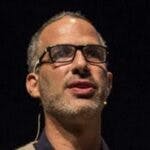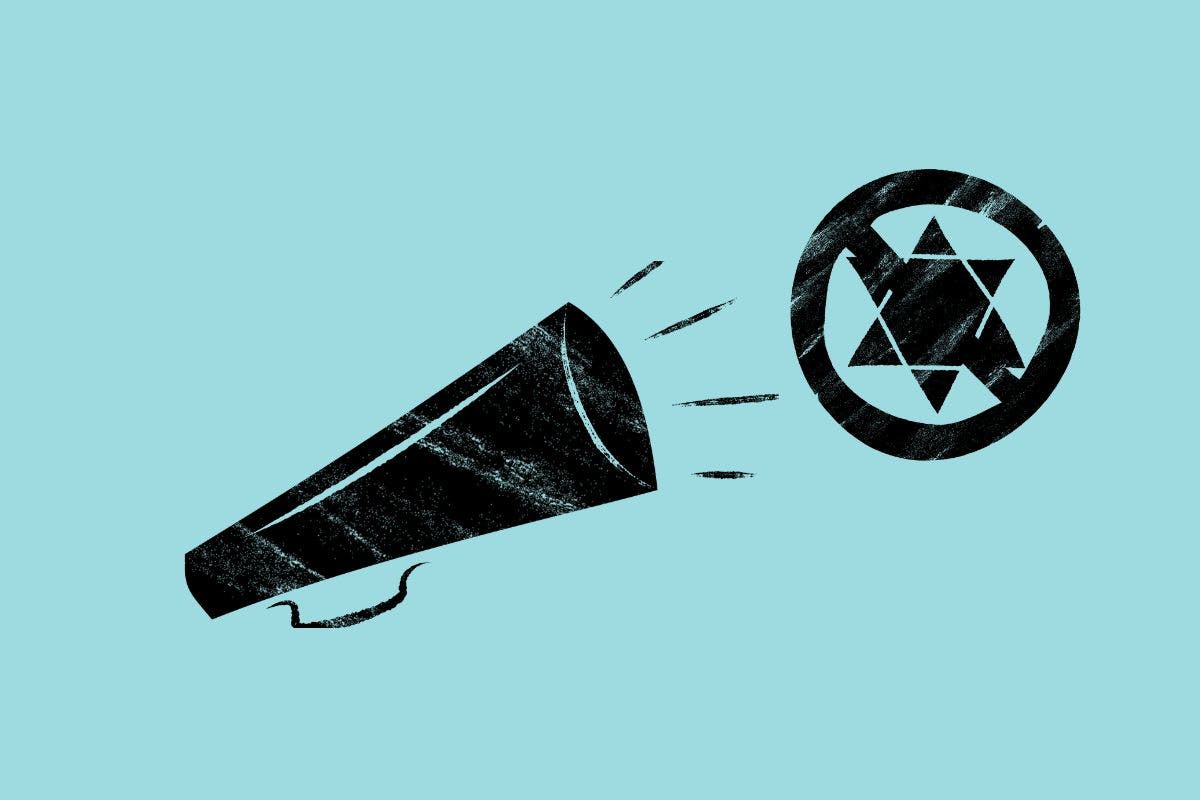Published: 15 March 2021
Last updated: 4 March 2024
GERTRUD KOLMAR DIED TOO YOUNG. The German lyric poet and writer was only 49 when she perished in Auschwitz in 1943. Today, she is considered one of the finest poets in the German language.
I thought of her on International Women’s Day earlier this week because even though I am a man, her words have given meaning to my life as an Israeli Jew who emigrated to Berlin.
She was born Getrud Käthe Chodziesner in Berlin in 1894 but used the pseudonym Gertrud Kolmar. “I am a poet, yes, that much I know; but I never want to be a writer,” she wrote to her beloved younger sister Hilde in 1941. She considered poetry to be spiritual; I wonder how she felt being both a woman and Jewish in German society?
In 1930-31 she wrote her only novel, Die jüdische Mutter (The Jewish Mother), which wasn’t published until 1965. It dealt with an abusive masculine society which ruined the life of women. It showed Kolmar had a feminist spirit.
In the novel, Martha Wolg discovers her five-year old daughter Ursa has been raped and cannot recover from her severe physical and psychological trauma. She ends her daughter’s life by giving her poison.
She then searches for the rapist but ends up taking her own life after she realises she is her child’s murderer. What aspects in the book had Kolmar seen in the life of women around her? What in the book reflected her own deeply torn and wounded life?
For this year’s International Holocaust Remembrance Day, I made a film, Jüdische Metamorphosen (Jewish metamorphoses), which traced some stations in Kolmar’s life in Berlin: Her memorial stone in Westend, her house in Spandau the public library in Schöneberg that was named after her, and the street near the Holocaust Memorial that’s named after her.
[gallery columns="1" size="large" ids="41641"]
And the Israeli poet Ronen Altman Kaydar has started a dialogue with Kolmar’s poem, Der Engel im Walde (Angel in the forest), with his poem Dann schieß doch auf mich (Then shoot me down). I wonder what she would think of immigrant Israeli poets reconnecting with her in Berlin?
Kolmar grew up in an upper-middle-class Jewish family that didn’t practice traditional Jewish rituals. According to Hilde, the family accepted Kolmar’s marriage to the non-Jewish book dealer Peter Wenzel. The couple divorced in 1943 but Wenzel saved her manuscripts and had them published in Germany after the war.
My family also accepted my marriage to a non-Jewish partner. I know the feeling, and the fear that our loved ones will be rejected.
After the death of her mother and the escape from Germany of her brother, Kolmar stayed in Berlin to take care of her old and sick father.
In 1938, Hilde left for Switzerland and both of you were forced to sell your house. Kolmar had to move to a crowded "Jewish apartment" in the Schöneberg district.
She understood things were getting out of control but remained with her father. It is so hard to think of this beautiful, fancy district of Schöneberg today, with bourgeois cafes and numerous tree plazas, as having once been a Jewish ghetto.
From 1938 she was forced to work 13-hour shifts in an ammunition packaging plant. And she knew death was waiting just around the corner. Still, at nights she wrote the novella Susanna and sent many letters to her cousin, the prominent intellectual Walter Benjamin.
She wrote to him about her idea for a novel in which a Jewish educator, a rigid and resentful woman, is in charge of educating Susanna, an adolescent girl with a "mental disorder".
The educator suffers from her love for a distant, imaginary fiancé and, as one critic later wrote, the “delicate love that develops between Susanna and the speaker, the Jewish educator”. How did Kolmar have the strength to imagine or fantasise about love when the racist brutality of the Nazis was destroying her world?
[gallery columns="1" size="large" ids="41640"]
And she had even more strength. In 1940 she began to study Hebrew, in part because she hoped to emigrate to Palestine. She attempted to write prose in Hebrew. She translated into German a poem by Hayim Nahman Bialik (1873–1934), one of the pioneers of modern Hebrew poetry. But she wasn’t allowed to leave Germany because she couldn’t get the documents to emigrate.
In 1942, Kolmar’s father was taken to Theresienstadt concentration camp, and she was sent to Auschwitz. Just before being deported, she took her manuscripts from her starched brown bag and send them abroad. They survived.
Not only was she eventually recognised by the Germans, Kolmar empowered us, those Israeli writers coming to Berlin from Israel. We found her footprint and hopefully we will deepen it.
Would she have liked it? Yes. Would she have been able to imagine it? No. But we will try to imagine and hold up her dreams and desires, not only as a Jew, but as a woman from our German neighbourhood.
Photo: Gerttud Kolmar and bronze flagstone memorialising her death




